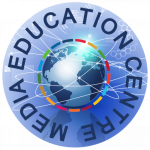
About Interests and Competencies:
Infodemia – Infodemic (in cooperation with the Institute for Public Health)
An Infodemic is too much information including false or misleading information in digital and physical environments during a disease outbreak. It causes confusion and risk-taking behaviors that can harm health. It also leads to mistrust in health authorities and undermines the public health response. An Infodemic can intensify or lengthen outbreaks when people are unsure about what they need to do to protect their health and the health of people around them. With growing digitization – an expansion of social media and internet use – information can spread more rapidly. This can help to more quickly fill information voids but can also amplify harmful messages.
Infodemic management is the systematic use of risk- and evidence-based analysis and approaches to manage the Infodemic and reduce its impact on health behaviors during health emergencies.
Infodemic management aims to enable good health practices through 4 types of activities:
- Listening to community concerns and questions
- Promoting understanding of risk and health expert advice
- Building resilience to misinformation
- Engaging and empowering communities to take positive action

Digital Video Mosaic in European Media Literacy Ecosystem
The primary objective of Digital Video Mosaic is to provide new knowledge base on the needs and developments of the European Media Literacy Ecosystem, to provide innovative scenarios and digital tools, as well as to increase its competitiveness and promote new media – digital educational and promotional activity and diversity through the development of a platform for remote immersive co-creative engagement of all stakeholders in the sector (primary for Festivals for films made by children and youth and Media Literacy and Education).
The Digital Video Mosaic project aims to improve the unity of the European Media Literacy Ecosystem by the development of immersive web-based platform that includes semantics, data analytics, artificial intelligence, and immersive technologies for better matchmaking among the stakeholders, the model of the Digital Video Mosaic is to embed ICT trends in the Digital Video Mosaic platform that will positively affect its various sub-sectors of:
- media literacy education
- pre-production, production, post-production and promotion
- children and youth film festivals activities segments from submission through selection, screenings up to award ceremony
- the sustainability of the traditional pipeline in European Media Literacy Ecosystem by the development of an innovative solution that comes from the Digital IC Technologies and makes the global VET and MOOC production more durable in periods with restrictions or in unpredictable situations.
Accordingly, three main challenges will be addressed by the scientific and innovation activities of the project:
- Accelerate the transformation of the Digital Video Mosaic to become contemporary and efficient tool,
- Strengthen the unity of the European Media Literacy Ecosystem against market fragmentation,
- Provide innovative and democratized Digital Video Mosaic sustainable platform for European Media Literacy Ecosystem
How improving social sciences education for the professionals of tomorrow?
- Fostering new, innovative and multidisciplinary approaches to teaching and learning, by piloting a new curriculum following the micro-credentials and learning outcomes approach, aimed at addressing the skills gap between GIS education in social sciences and the new competences needed in the labor market, also aiming at developing a path of upskill of the already working professionals, making them aware of the opportunities brought by continuous vocational education and training.
- Stimulating a sense of initiative and entrepreneurial attitudes, mind-sets and skills in learners, educational staff and other workers, in line with the Entrepreneurship Competence Framework, by offering the participants the possibility to take part in a learning path full of different opportunities, from the MOOC to the Specialization Course, to the project-based learning. The participants will be able to develop a sense of initiative thanks to all the competences and skills they will acquire and that they will be able to use on the labor market.
- Improving the quality and relevance of skills developed and certified through education and training systems (including new skills and tackling skills mismatches), by assessing the learning outcomes using the main European tools and frameworks, such as EQF, ECVET and EQAVET.
- Facilitating the flow and co-creation of knowledge between higher education and vocational education and training, research, the public sector and the business sector, by creating a close and permanent collaboration between the consortium partners, both HE Institutions, VET providers and labor market actors. The different sectors’ representatives will effectively collaborate in the implementation, exploiting their different expertise and making sure to maximize the exchange between the different target groups.
What we are also interested?
Improving social and societal preparedness for disaster response and health emergencies
- To develop an understanding of individual and contextual factors that facilitate and limit the capacities of vulnerable individuals to access, understand and act upon communication. This understanding will inform the development of tools and processes that identify the communication needs of vulnerable groups to improve risk and crisis communication practices for current and emerging disasters and health emergencies.
- To create sustainable initiatives and tools/processes that facilitate and enable increased citizen participation and empowerment in the crisis management process.
- To map and demonstrate the opportunities and challenges that information technology, including machine learning and other artificial intelligence tools, provide to crisis management policy and decision making, including an examination of the potential of citizen generated data.
- To contribute to practices for information technology in the disaster response context, including concern for data security, privacy, fundamental rights, explainability, accessibility and societal impact.
For people with learning disabilities
Upskilling and innovating educators, trainers and learning centers offers by including people affected by learning disabilities and facilitating digital transition and overall inclusion of excluded target audiences with:
- training course;
- capacity building activities to share, learn from peers, take inspiration and network;
- guidelines on inclusive communication and digital learning environments to facilitate innovation and inclusion at any stage of the learning process at all levels.
To create innovative guidelines, content based and digital tools and reports, rely on trainers’ and educators’ skill-up, increasing their educational offers to people affected by learning disabilities, especially on digital competences, and skills relevant to other fields and sectors.
To innovating education, networking, supporting, exchanging of processes, formats, solutions and needs to include Europeans with learning disabilities in society, forward looking innovation in social inclusion, education, and digital transformation diversifying education considering disabilities needs.
Digital Tools for Competitiveness and Sustainable Growth
Recognition of ingrained basic processes, complex and time-consuming processes, and the recognition of ways to increase efficiency in these areas identifying:
- decision-inhibiting factors and assessing the need to reduce administrative time,
- use enterprise management and customer management systems,
- introduce data access through cloud services and
- use smart devices.
We are interested to create recommendations on how to assist entrepreneurs in the digital transition process. Based on the recommendations, we are interested to establish a strong foundation for future grant applications. The recommendations will include specific and practical steps to help entrepreneurs in the digital transition process.
The recommendations will be jointly prepared by experts from partner’s countries based on the research data and the experiences gained during the pilot project. So, in recommendations we could consider not only the research data but also the project’s results.


